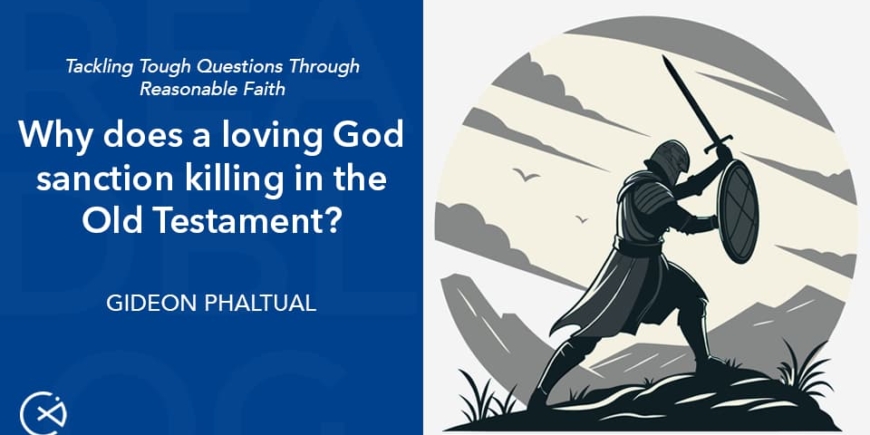Why does a loving God sanction killing in the Old Testament?
This question might be one of the toughest questions to answer in the context of the Old Testament (OT) of the Bible. The tension is so intriguing that it led one of the early Christians named Marcion (85 AD-160 AD) to conclude that the God of New Testament (NT) is different from the God of the OT. Of course, such a conclusion could not be attested in the early Church since Christ himself pointed to the God of the OT as the Father of all, proving that the God of the OT and NT are the same. So how do we reconcile this problem?
To investigate, let’s first establish a few things before marching ahead to engage with the question. First, we need to understand that although God is love (1 John 4:8; Ex.34:6), He is also a judge (Is.33:22), not only to the people of Israel but to the whole world. That means He can reward or punish the people according to their deeds not only in after-life but also in this life. Second, it has been often portrayed that God’s love is shown more in the NT and His wrath in the OT. However, this is a false representation as Jesus speaks about hell more than 70 times in the NT (along with God’s final judgement in the book of Revelation) and OT records God’s love for His people and the world several times (Deut.7:7-8). God’s love and wrath can be seen both in OT and NT. And thirdly, violent punishment is not the initial plan of God since He made everything and saw that it was “good” (Gen.1). This notion can be seen when God denies David’s request to build a temple for Him since he had shed much blood (2 Chr.22:8). Thus, violence can be termed as a necessary evil used by God to punish the evil doers who deserved punishment according to His moral standards.
Having laid down the prerequisites, let us now dive into the specifics. The most disturbing and intriguing verses are found in Deut.7 & 20 where God commands the Israelites to annihilate the Canaanites. As merciless as it sounds, the reader needs to know and understand that God does not punish people randomly but for their decadent sins that had been held unaccounted for. The Bible says that the Canaanites practised detestable things that the Israelites were not supposed to emulate (Lev.24). However, God had waited 400 years to pronounce such judgment on the Canaanites (Gen.15:13-16) using Israel as an instrument of His judgment. This analysis shows that God showed patience to the Canaanites and gave them time to turn from their evil ways. Ironically, it can be also seen in the book of Judges and Kings that God used other nations to punish Israel as a result of their disobedience showing that He does not show favouritism in His judgment. We can even see further that God did not destroy Rahab (Josh.2) and the Gibeonites (Josh.9) who sought refuge in God. On the contrary, the Canaanites hardened their hearts (like Pharaoh) and sought to fight Israel and their God in their pride which led to their defeat (Josh.10-11). This closer look at the narrative sheds light on God’s judgment, where His patience for the rebellious and mercy to those who acknowledge His sovereignty can be clearly seen.
In retrospect, when we look closer at the narrative, we can see that God is just in dealing with evil and at the same time merciful to those who seek mercy. Thus, in answering the proposed question, it can be concluded that there is no contradiction in the nature of God in the OT as it portrays His dual characteristic traits, i.e. justice and love, which are consistent with His portrayal in the Bible. This reconciliation not only helps a believer to strengthen his/her faith in God’s word but also gives a clear picture of who God really is.

